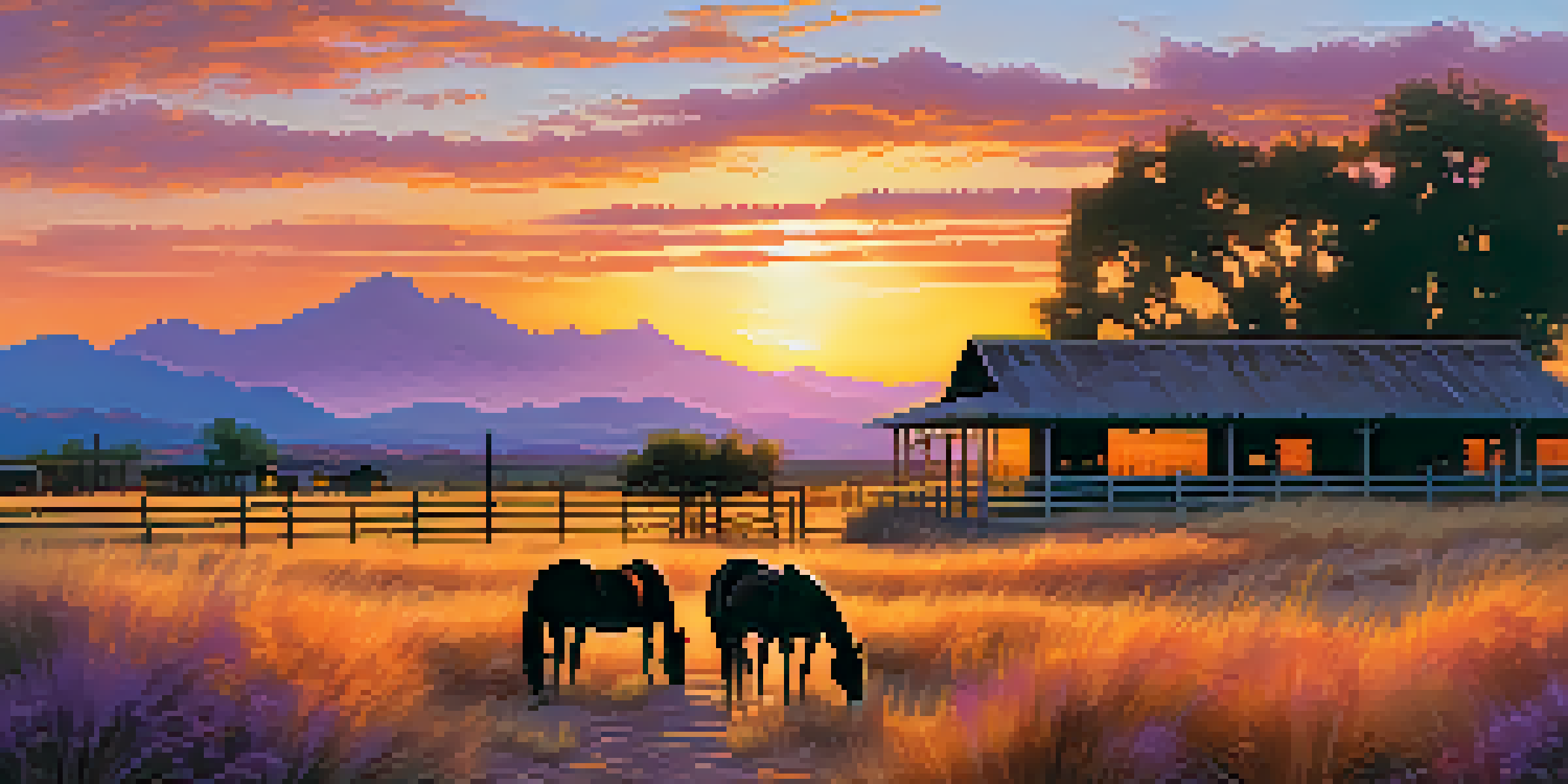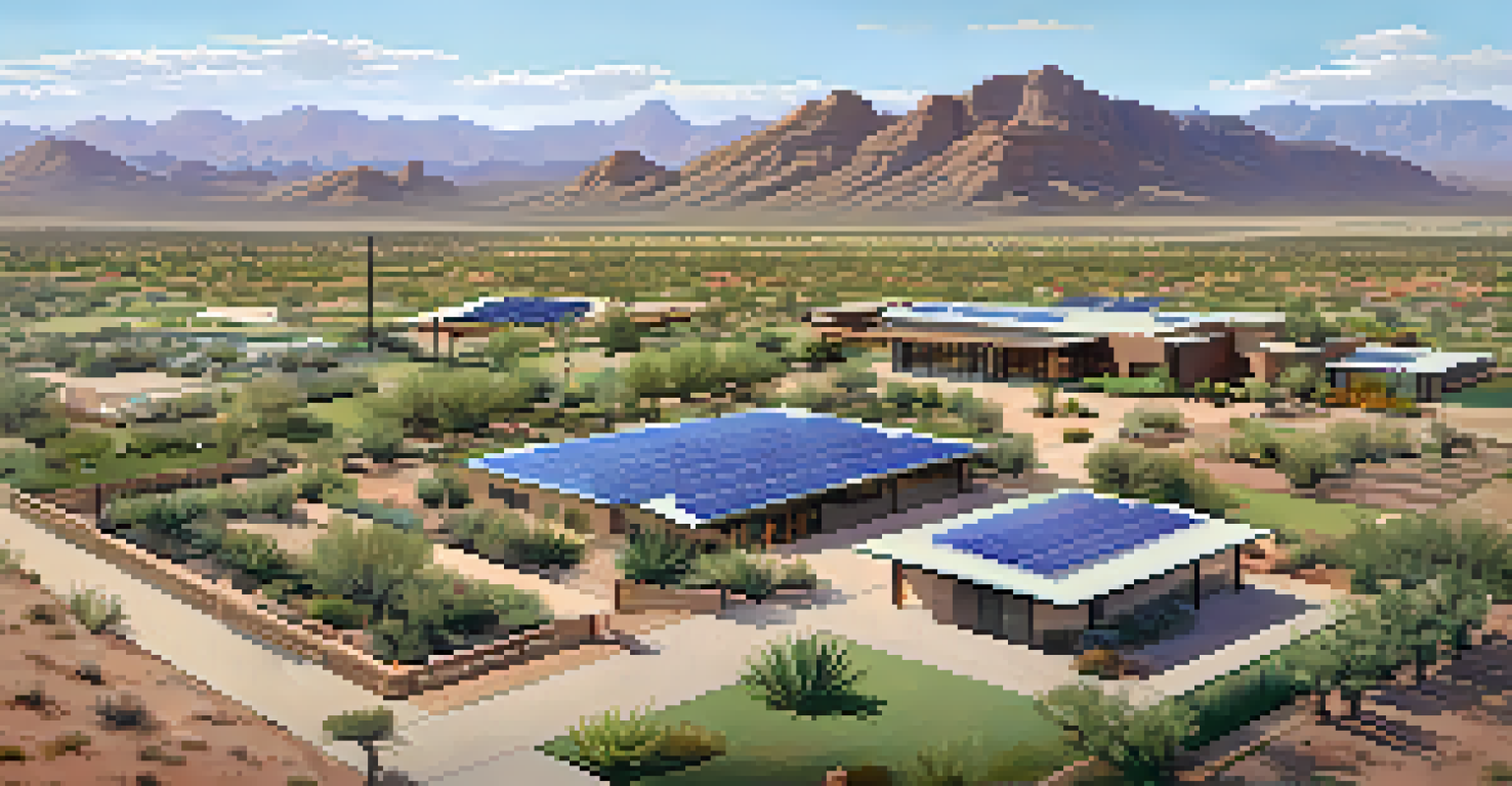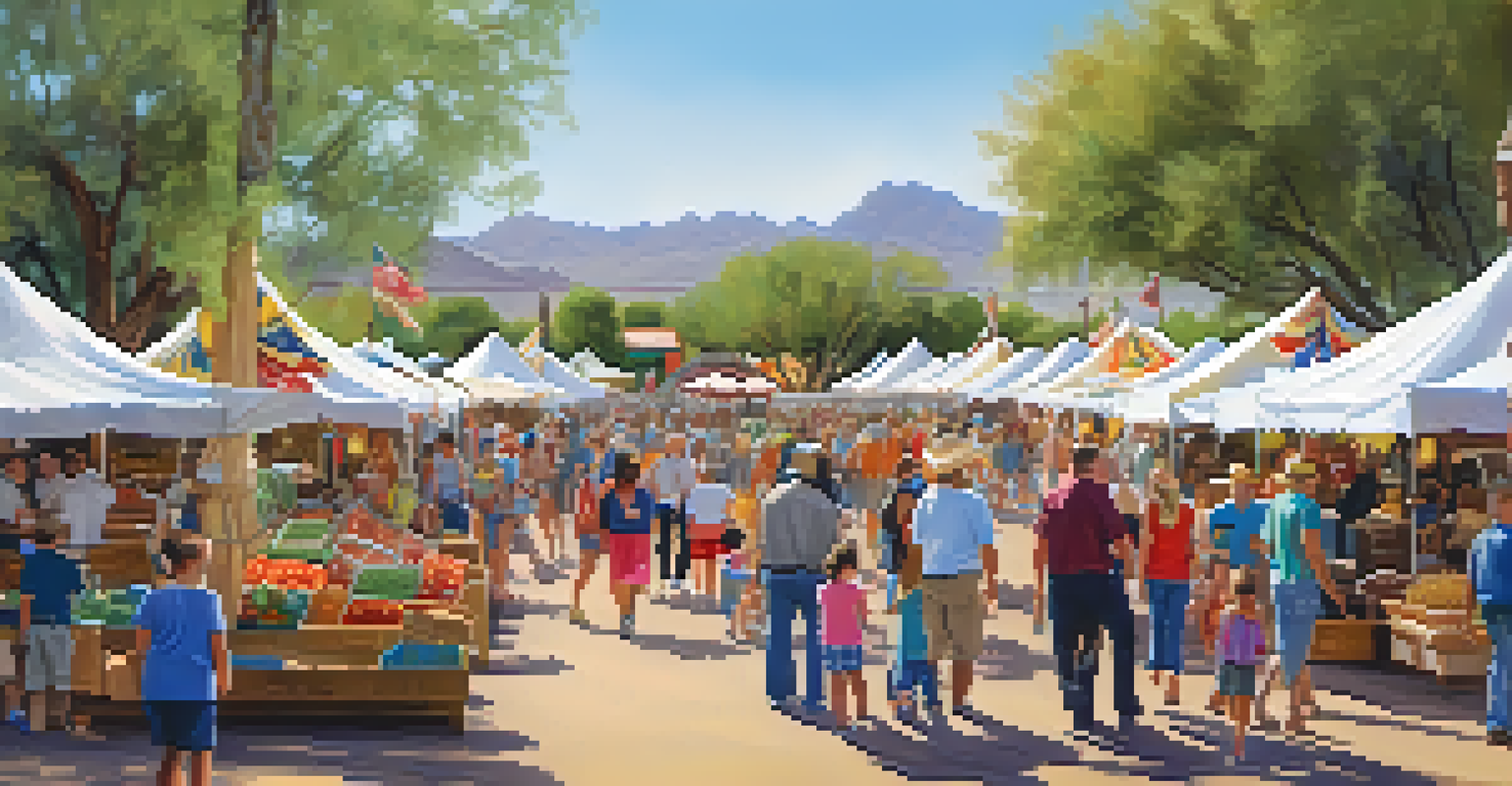The Origins of Scottsdale's Ranching Heritage and Culture

The Early Days of Scottsdale: A Ranching Hub
Scottsdale's ranching heritage traces back to the late 1800s when settlers began to recognize the area's potential for agriculture and livestock. The region's arid climate and fertile soil made it an ideal location for ranching and farming. As families established homesteads, they brought with them a wealth of knowledge and traditions that would shape the community's identity.
Land is the foundation of our identity and our legacy; it connects us to our past and guides our future.
One of the earliest ranchers was Winfield Scott, who played a crucial role in founding the town in 1888. His vision for a thriving agricultural community laid the groundwork for Scottsdale’s future. With the arrival of the railroad in the early 1900s, ranchers could transport their goods more efficiently, further boosting the local economy.
As the population grew, so did the demand for ranching products, leading to the establishment of various ranches and farms in the area. This growth fostered a culture that celebrated the rugged individualism and hard work that defined the ranching lifestyle.
The Role of Native American Influence
Long before European settlers arrived, Native American tribes like the Hohokam thrived in the Scottsdale area, practicing agriculture and animal husbandry. Their advanced irrigation techniques allowed them to cultivate crops in the desert, laying the foundation for future ranching practices. Today, we recognize the significance of their contributions to the region’s agricultural history.

The legacy of Native American culture is still visible in Scottsdale, with local events and festivals celebrating their traditions. By incorporating these elements into Scottsdale’s ranching heritage, the community honors the deep-rooted ties between the land and its original inhabitants.
Scottsdale's Rich Ranching Heritage
The town's ranching roots date back to the late 1800s, shaped by early settlers and Native American influences.
This blend of Native American practices and European ranching techniques created a unique agricultural environment, enriching Scottsdale's cultural landscape. It showcases how diverse influences can come together to shape a community's identity.
The Impact of the Great Depression on Ranching
The Great Depression brought significant challenges to Scottsdale's ranching community. Many ranchers faced financial hardships, leading to the sale of their lands and livestock. The struggle was palpable, as families fought to keep their ranches afloat amidst a struggling economy.
The great thing about ranching is that it's a lifestyle, not just a job. It's about respect for the land and the community.
Despite these difficulties, the resilient ranchers found ways to adapt and innovate. Some turned to alternative crops or diversified their livestock to survive the economic downturn. This adaptability became a hallmark of Scottsdale's ranching culture, demonstrating the unwavering spirit of its people.
Over time, the community began to recover, and the lessons learned during this period instilled a sense of unity among ranchers. Their shared experiences strengthened bonds and laid the groundwork for a supportive network that persists today.
Modern Ranching Practices in Scottsdale
Today, Scottsdale's ranching heritage is alive and well, blending traditional methods with modern techniques. Ranchers now utilize advancements in technology and sustainable practices to enhance productivity. From precision farming to eco-friendly livestock management, the local ranching community is committed to innovation.
Moreover, many ranches have embraced agritourism, inviting visitors to experience ranch life firsthand. This not only helps generate income but also educates the public about the importance of ranching in preserving the region's culture and history. Tours, workshops, and events showcase the skills and passion of local ranchers.
Resilience During Economic Hardship
Even during the Great Depression, Scottsdale's ranchers adapted and innovated to preserve their livelihoods.
Through these initiatives, Scottsdale's ranching culture continues to thrive, reminding us of its rich heritage while adapting to contemporary challenges. The enduring connection to the land remains a central theme of Scottsdale's identity.
Celebrating Scottsdale's Ranching Heritage
Scottsdale hosts numerous events that celebrate its ranching heritage, such as the Scottsdale Arabian Horse Show and the Scottsdale Western Week. These gatherings draw locals and tourists alike, providing a platform for ranchers to showcase their skills and products. It's a vibrant expression of community spirit and pride in their ranching roots.
These events not only highlight the beauty of ranch life but also foster connections between generations. Younger ranchers learn from seasoned veterans, ensuring that traditions and skills are passed down. This mentorship has helped keep Scottsdale's ranching culture alive and well.
Ultimately, these celebrations serve as a reminder of the hard work, dedication, and passion that have shaped Scottsdale's ranching heritage. They create a sense of belonging and community, allowing everyone to appreciate the rich history that continues to thrive.
The Future of Ranching in Scottsdale
As Scottsdale looks to the future, the ranching community faces both challenges and opportunities. Water scarcity, urban development, and climate change present hurdles that require innovative solutions. However, many ranchers are committed to sustainable practices that prioritize environmental stewardship.
Collaboration among ranchers, local government, and conservation organizations is crucial for preserving Scottsdale's ranching heritage. By working together, they can develop strategies that ensure the longevity of ranching in the region while also protecting the environment.
Future Challenges and Sustainability
Scottsdale's ranching community faces modern challenges but remains committed to sustainable practices and preservation efforts.
The future of Scottsdale's ranching culture hinges on this balance between tradition and innovation. By embracing new ideas while honoring their roots, the ranching community can continue to thrive for generations to come.
Preserving Scottsdale's Ranching History
Preservation efforts are vital to ensuring that Scottsdale's ranching history is not forgotten. Local organizations and historical societies work tirelessly to document the stories and experiences of ranchers in the area. These efforts help keep the community's rich heritage alive for future generations.
Museums and heritage sites also play a critical role in showcasing Scottsdale's ranching past. They provide educational resources and programs that highlight the importance of ranching in shaping the community's identity. Visitors can explore artifacts and learn about the practices that have defined ranching in the region.

By prioritizing preservation, Scottsdale honors its past while inspiring a new generation to appreciate the land and its history. This dedication to remembering where they came from is what truly enriches the community.